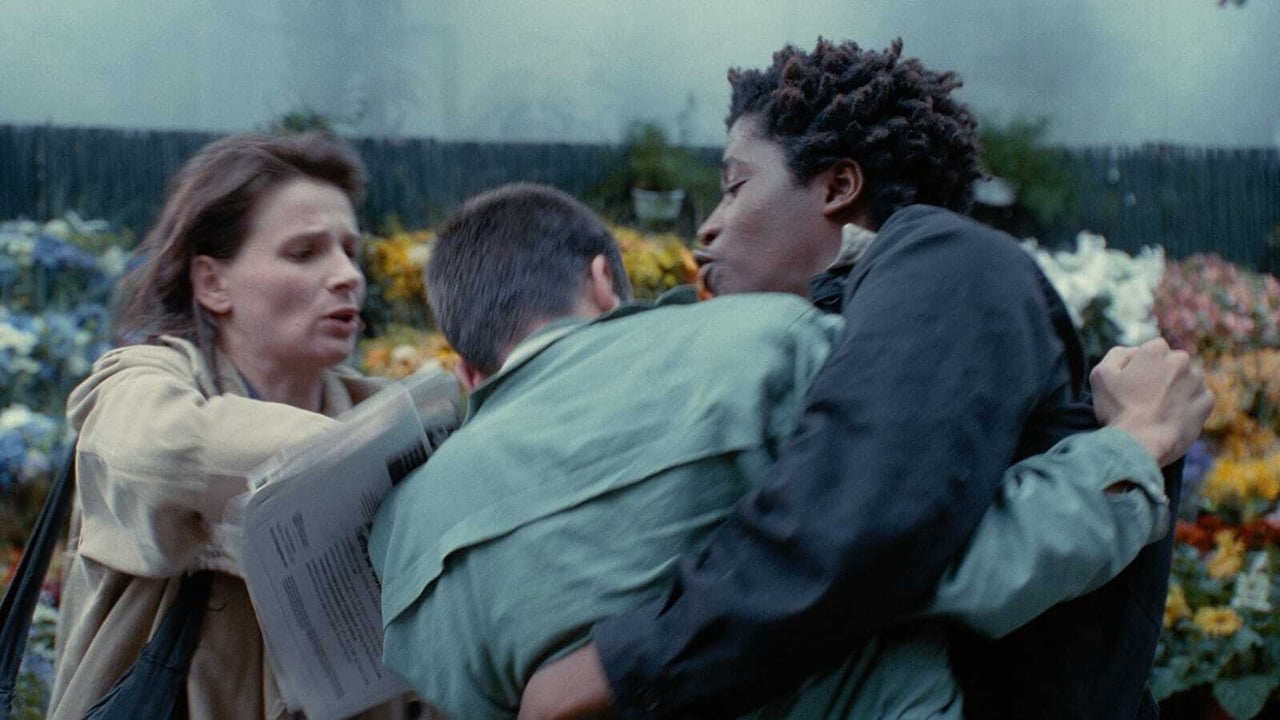

Michael Haneke creates a multiple character, multiple plot-line film that film lovers have seen time and again. Amores Perros, Babel, Short Cuts, Magnolia. You know that the essence of a great filmmaker is one who can juggle multiple stories and characters at once, and even more so, whether or not he can intertwine these stories at the very end. It's confusing whether or not Code Unknown does that, but it attempts it successfully at the very least. A lot of the talking scenes didn't resonate with me. Although the ADR scene blew me away. At first I was in the midst of a shocking scene where a child almost falls off of a building, to reveal that it was part of a filmed scene-within-the-movie of which the actress is in the process of re-recording. That is awesome stuff. Also, take a look at the unbearable tension in the subway scenes. It's nail biting stuff.
... View MoreUpon re-watching it, my reaction was oh...okay, everything makes sense now. Haha. I loved the film and that's why I'm watching it again. What I remembered from the first viewing though was that nothing really makes sense. It was all fragmented but really intense. I didn't understand anything much but I just loved the form, the energy, the direction. Now that I'm seeing it again, everything makes perfect sense. Everything is there. The story is well connected. How did I miss it? Was I too young when I first saw it? Now that I know everything is well connected, the mystery is gone in a way. It's less fascinating in a way. It's like the "code" is not unknown anymore. The key has been unlocked. I'm not sure if it's a good thing or a bad thing. One thing for sure is that the film is definitely not random. But part of me wish that the bewilderment was still there.Still a great film though. Truly inspiration.
... View MoreGerman art has its own fascinating charm, especially contemporary German film and most especially the Austrian subset. There's a desire for purity that creates clarity, often remarkably clear and well-machined films. The problem is that the filmmakers truly believe that this Cartesian purity brings one closer to the human condition, crisp beings that we are.So we get a shorter distance between us and the film. That's good. But there is an almost unbridgeable gap between the film and the world — any world — that matters. Herzog has figured a way around his national urge in this regard by pretty much just being nuts and making committed obsessive films about committed obsession. Tykwer escapes by becoming Polish. But Hanake is stuck.I really liked this as a film, as an artifact with craft. There's a lot of polish and refinement in what it is, how it is imagined, and the machining of the parts. It starts (and incidentally ends) with amazing panache: deaf children playing charades and unable to guess.It has some true performances, most particularly with the women around whom this revolves — including Binoche.It has some remarkable long scenes that are continuous takes, often tracking in complex ways. These are not interspersed; they are the thing itself, with many scenes of simple observation where nothing apparently happens. This allows us to really drill into the lives of these people — if they were anything like humans.The problem is in the construction. He has decided to follow an already well established structure of several casually interwoven lives. What he has uniquely done is weight every life — indeed every action in each life — as equally important. So adjusting a camera is as "important" as a shot of a farmer shooting his bulls because his youngest son has abandoned him, the last family member to do so.In wiser hands, this could have conveyed the angst of the ordinary, but it works the other way, selling the banality of the dramatic.For students of narrative folding, the chief man is a war photographer, and his photos anchor what we see in the film. His girl friend (Binoche) is an actress and we have folded in two films (a remake of "The Collector" and a fictional one that matches "real life") and a Shakespearean play about shrewish love. Wonderfully imagined, and structured, but in a mechanical universe.Vienna as an algorithm.Ted's Evaluation -- 2 of 3: Has some interesting elements.
... View MoreIt was remarkable to me in that I found myself completely and continuously enraged after about 20 minutes. This is a very unusual response in my mental catalog, and I'm wondering if there's something possibly instructive about that. In any event, I temporarily suspended my anger, hoping that somehow sense might at last be made of the material. I was disappointed in that hope.The adjectives that come immediately to mind are: Pretentious and Self-indulgent. The hours spent watching were wasted, and I am disheartened to see this director being praised, and even paid (!) for dragging his audience through these disconnected and over-long vignettes. A few of the scenes were interesting, some disturbing, but by far the majority were just pointless. I am interested to see that there are so many responses to this film on this site, and to see that a great many folks feel this is a truly great film. I don't necessarily think their responses are nutso, but it's interesting that there are people whose perceptions are so different from mine. Phony intellectuals? Maybe not -- maybe it's due to some real difference in brain chemistry.
... View More